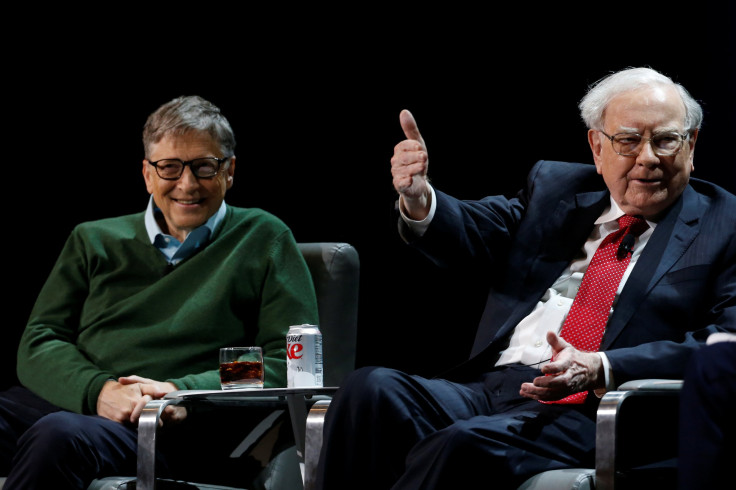Warren Buffett Praised By Bill And Melinda Gates: Billionaire Investor Is 'The Most Optimistic, Upbeat Person We Know'

In an op-ed published on Valentine’s Day, Microsoft Corp. co-founder and former chief executive Bill Gates and his wife, philanthropist Melinda Gates, expressed their love and appreciation for billionaire investor Warren Buffett, who’s contributed the largest gift ever to the couple’s eponymous foundation.
“Some people might say, ‘I'd be optimistic, too, if I'd had his success,’” the couple wrote in a piece for CNN. “But we think that has it backward. Warren's success didn't create his optimism; his optimism led to his success. Because optimism isn't a belief that things will automatically get better; it's a conviction that we can make things better. ”
The couple recounted Buffett’s words upon his donation of $37 billion to the Bill and Melinda Gates Foundation, which seeks to eliminate global poverty and disease, in June 2006.
“He didn’t give us any instructions,” they wrote. “He just said, ‘I’m good at making money, not giving it away. That part’s up to you.’”
Buffett is indeed objectively good at making money. In Forbes’ 2016 rankings of the world’s billionaires by net worth, he came in third, with $60.8 billion, after Bill Gates, with $75 billion, and Amancio Ortega—the Spanish founder of the fashion conglomerate Inditex, parent of the clothing brand Zara—with $67 billion.
While Buffett earned his billions by making smart investments in firms such as the Omaha, Nebraska-based behemoth Berkshire Hathaway, which he took over in the mid-1960s, he’s also somewhat paradoxically known for his far left stance on socioeconomic inequality, making the Bill and Melinda Gates Foundation a natural destination for his massive financial gifts.
The Omaha native made headlines in August 2011 when he penned a New York Times op-ed complaining that investors like himself earned millions, or even billions, in dividends and capital gains while paying lower tax rates than “any of the 20 people in our office.” Then President Barack Obama turned Buffett’s frustration into the so-called “Buffett rule,” which requires millionaires to pay a 30 percent minimum effective tax rate and failed in the Senate in March 2012.
© Copyright IBTimes 2024. All rights reserved.






















